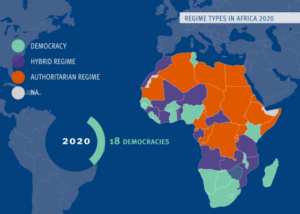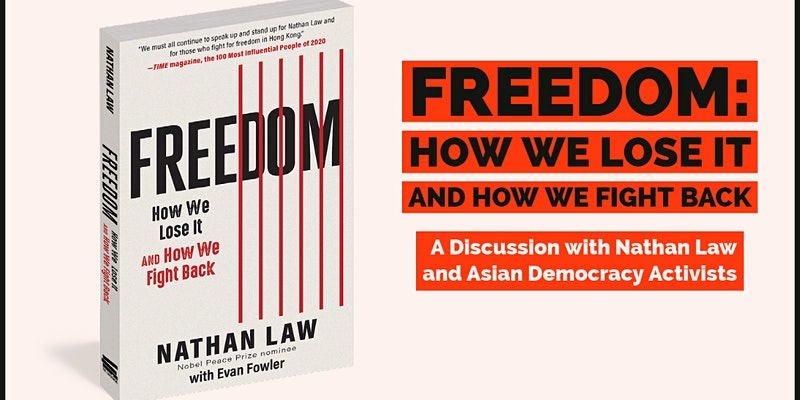Chinese President Xi Jinping will hold a virtual meeting with his Russian counterpart Vladimir Putin on Wednesday, as both countries face mounting diplomatic pressure from the West. The meeting, announced on Monday by the Chinese Ministry of Foreign Affairs, will be the second virtual discussion between the two leaders this year, which analysts say is a show of solidarity between Beijing and Moscow, especially towards Washington, The South China Morning Post reports:
The two countries have announced deeper ties on a wide range of shared interests, including building a lunar space station. They have also criticized the democracy summit hosted by Washington last week, an effort to rally support from around the world for democratic norms that excluded Beijing and Moscow.
Days after the White House Summit for Democracy, thousands are gathering for the Open Government Partnership (OGP) Global Summit in Seoul, Republic of Korea on December 15-17.

To mark its 10th anniversary, the OGP will release an in-depth Decade Report, making the case that democratic reforms are more ambitious and the results more robust when governments partner with civil society. The report reviews some 2,000 of more than 4,500 reforms co-created in 78 countries over the past decade, and over 20 percent made government significantly more open. These actions help fight corruption, promote direct citizen engagement, combat growing inequality, and improve citizen trust of government, the report adds:
- Data shows that the more open a government is, the better the socio-economic outcomes.
- Countries that published more government data have had lower death rates during COVID-19 than more secretive governments.
- Countries that have more budget transparency borrow money at lower rates and spend more of it on vital social services.
 After President Biden’s democracy summit, what does it mean when countries say they are a democracy? NPR’s Steve Inskeep talks to Seema Shah, co-author of International IDEA’s Global State of Democracy report (right).
After President Biden’s democracy summit, what does it mean when countries say they are a democracy? NPR’s Steve Inskeep talks to Seema Shah, co-author of International IDEA’s Global State of Democracy report (right).
POLITICO’S NatSec Daily asked experts on how to measure the just-concluded Summit for Democracy’s success.
The event “exceeded expectations reassuring our democratic allies and sending a needed message to our adversaries,” said Damon Wilson, president and CEO of the National Endowment for Democracy (NED). “The administration showed up with new ideas, new resources and new energy. The summit forced a global strategy session of sorts in which leaders, activists and journalists could challenge each other, learn from each other, all in an effort to raise our collective game.”
The Carnegie Endowment ‘s Frances Z. Brown isn’t as convinced, POLITICO notes.
“The Biden administration’s theory of success for the summit is that the event will galvanize energy towards renewing democracy, both globally and at home, and spur participants to make concrete commitments on how they will advance that goal,” she said. “But it will be only over the coming year — the so-called ‘year of action’ — that we will see whether participants make tangible progress toward meeting those commitments.”
 They both make fair points, POLITICO adds. To bolster Wilson’s case, the U.S. made investments in local media and sanctioned human rights abusers, among other moves. But in Brown’s defense, it’s way too early to know if the other governments will follow the Biden administration’s lead and push for their own pro-democratic reforms.
They both make fair points, POLITICO adds. To bolster Wilson’s case, the U.S. made investments in local media and sanctioned human rights abusers, among other moves. But in Brown’s defense, it’s way too early to know if the other governments will follow the Biden administration’s lead and push for their own pro-democratic reforms.
To some, the logic of the democracy/autocracy divide leads to a democracy-only world, adds Robert A. Manning, a senior fellow of the Scowcroft Center for Strategy and Security and its New American Engagement Initiative at the Atlantic Council. But throughout history, there have been few orders that excluded major powers, especially ones as important as China, the world’s largest trading power, a tech power and a leading capital exporter; and Russia, a major nuclear weapons state. To do so would be a recipe for instability and conflict. That reality underscores the imperative of like-minded democracies finding consensus to gain the leverage to counter-balance China. The U.S. must get its own house in order before it can reclaim its moral authority and usher in democratic renewal writ large, he writes for The Hill.
To mark the Summit for Democracy, the National Endowment for Democracy hosted a conversation between Hong Kong democracy activist Nathan Law (Hong Kong) and Senator Ben Sasse (above) as part of its Rebuilding Democratic Momentum forum.
At a NED event co-hosted with the International Republican Institute and the National Democratic Institute, Pulitzer Prize-winning historian and Atlantic staff writer Anne Applebaum will engage Nathan Law, Zumretay Arkin, Pema Doma, and Teng Biao in a conversation about how to build solidarity, opportunities for democratic activism in exile, and how to counter the global repression of the CCP. Tue, December 14, 2021. 9:00 AM – 10:30 AM EST Add to calendar. REGISTER.








